Links to external sources may no longer work as intended. The content may not represent the latest thinking in this area or the Society’s current position on the topic.
Digital Technologies and the Planet: Towards Net Zero

Read the conference report summarising the event (PDF).
View the conference talks on the Royal Society's YouTube channel.
Human activity has increased atmospheric carbon dioxide (CO2) concentration by more than 40% since pre-industrial times. This, and increases in other greenhouse gases such as nitrous oxide, has led to a global average temperature rise of 1°C above pre-industrial levels. If emissions continue to increase at their present rate, temperatures could rise by more than 4°C by 2100. Limiting global warming to 1.5°C may still be feasible. To achieve a 1.5°C target, the net emissions of long-lived greenhouse gases, principally CO2, would have to reach ‘net zero’ level by around 2050. In the next decade urgent, ambitious and concerted action is required across all countries and sectors to deliver rapid emissions reductions. Rapid and unprecedented changes in energy, land use, urban development, transport, infrastructure and industrial systems are needed, with implications for how individuals live and work.
Digital technologies could support this transformation. These technologies have already reshaped many daily activities – from online retail to on-demand transport services – with individuals using data-enabled systems to bring physical activities into the digital realm, reducing carbon emissions in the process. As technologies develop and systems for data use evolve, there will be further opportunities to find new ways of carrying out everyday tasks, with digital technologies bolstering a low-carbon revolution.
This conference follows the launch of the Royal Society's Digital Technologies and the Planet policy report on 3 December.
Attending this event
This online conference has been developed to help generate connections between industry, academia and government. We would welcome attendees involved in high-tech and digital industries, green technology, green recovery and the Just Transition, associated policy and finance bodies, as well as those with an interest in the social sciences. If you meet these criteria, or are otherwise interested, please do register for this event.
Please direct any questions to the Industry team.
About the conference series
This scientific meeting is part of the Royal Society’s Transforming our Future conference series. The Transforming our Future meetings are unique, high-level events that address the scientific and technical challenges of the next decade. Each conference features cutting edge science from industry and academia and brings together leading experts from the scientific community, including regulatory, charity and funding bodies.
Join the Scientists mailing list to receive updates about the Royal Society's activities and events.
Organisers
Schedule
Chair
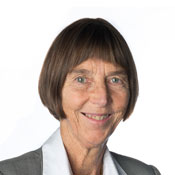
Dame Sue Ion GBE FREng FRS

Dame Sue Ion GBE FREng FRS
Dame Sue Ion GBE FRS FREng is Hon President of the National Skills Academy for Nuclear. She was previously Chairman of the UK Nuclear Innovation Research Advisory Board (NIRAB). She represents the UK on a number of international review and oversight committees for the nuclear sector including the Euratom Science and Technology Committee which she chaired until late 2018. She was the only non-US member of the US Department of Energy’s Nuclear Energy Advisory Committee on which she has served from 2005-2020.She currently serves as a member of the Office of Nuclear Regulation Independent Advisory Panel.
Sue spent 27 years with British Nuclear Fuels Ltd (BNFL) rising to the position of Chief Technology Officer in 1992, a post she held until 2006 when she assumed a number of mainly voluntary roles in Science and Engineering, including membership of the UK Council for Science and Technology and the Engineering and Physical Sciences Research Council (EPSRC). She was Vice President of the Royal Academy of Engineering 2002-2008 and chaired its MacRobert Committee 2013-2019. Sue was Deputy Chair of the Board of the University of Manchester until September 2018 and currently serves on the Board of the University of Central Lancashire.
Her core expertise is in materials science and engineering associated with the nuclear sector. Sue is a member of the Chief Scientific Advisor for Wales’s Science and Innovation Advisory Council. She has been a Visiting Professor in the Department of Materials at Imperial College since 2006, holds an Honorary Professorship at the University of Manchester and is now Chair of the Royal Society Science, Industry and Translation Committee.

Dame Sue Ion GBE FREng FRS

Dame Sue Ion GBE FREng FRSDame Sue Ion GBE FRS FREng is Hon President of the National Skills Academy for Nuclear. She was previously Chairman of the UK Nuclear Innovation Research Advisory Board (NIRAB). She represents the UK on a number of international review and oversight committees for the nuclear sector including the Euratom Science and Technology Committee which she chaired until late 2018. She was the only non-US member of the US Department of Energy’s Nuclear Energy Advisory Committee on which she has served from 2005-2020.She currently serves as a member of the Office of Nuclear Regulation Independent Advisory Panel. Sue spent 27 years with British Nuclear Fuels Ltd (BNFL) rising to the position of Chief Technology Officer in 1992, a post she held until 2006 when she assumed a number of mainly voluntary roles in Science and Engineering, including membership of the UK Council for Science and Technology and the Engineering and Physical Sciences Research Council (EPSRC). She was Vice President of the Royal Academy of Engineering 2002-2008 and chaired its MacRobert Committee 2013-2019. Sue was Deputy Chair of the Board of the University of Manchester until September 2018 and currently serves on the Board of the University of Central Lancashire. Her core expertise is in materials science and engineering associated with the nuclear sector. Sue is a member of the Chief Scientific Advisor for Wales’s Science and Innovation Advisory Council. She has been a Visiting Professor in the Department of Materials at Imperial College since 2006, holds an Honorary Professorship at the University of Manchester and is now Chair of the Royal Society Science, Industry and Translation Committee. |
Chair

Dame Sue Ion GBE FREng FRS

Dame Sue Ion GBE FREng FRS
Dame Sue Ion GBE FRS FREng is Hon President of the National Skills Academy for Nuclear. She was previously Chairman of the UK Nuclear Innovation Research Advisory Board (NIRAB). She represents the UK on a number of international review and oversight committees for the nuclear sector including the Euratom Science and Technology Committee which she chaired until late 2018. She was the only non-US member of the US Department of Energy’s Nuclear Energy Advisory Committee on which she has served from 2005-2020.She currently serves as a member of the Office of Nuclear Regulation Independent Advisory Panel.
Sue spent 27 years with British Nuclear Fuels Ltd (BNFL) rising to the position of Chief Technology Officer in 1992, a post she held until 2006 when she assumed a number of mainly voluntary roles in Science and Engineering, including membership of the UK Council for Science and Technology and the Engineering and Physical Sciences Research Council (EPSRC). She was Vice President of the Royal Academy of Engineering 2002-2008 and chaired its MacRobert Committee 2013-2019. Sue was Deputy Chair of the Board of the University of Manchester until September 2018 and currently serves on the Board of the University of Central Lancashire.
Her core expertise is in materials science and engineering associated with the nuclear sector. Sue is a member of the Chief Scientific Advisor for Wales’s Science and Innovation Advisory Council. She has been a Visiting Professor in the Department of Materials at Imperial College since 2006, holds an Honorary Professorship at the University of Manchester and is now Chair of the Royal Society Science, Industry and Translation Committee.
| 13:05 - 13:30 |
The state of the planet: a blueprint for a green future
As we emerge from a second national lockdown, we need to take this time to think about the months and years ahead. This is a crucial moment for the UK and the world. We are dealing with a pandemic, but we must also take urgent action to prevent an even more destructive environmental future. How we choose to prioritise an economic and societal recovery will dramatically affect the outcomes of both for future generations. In her talk, Dr Shuckburgh will outline what we know about the climate issue today, potential solutions from new policies to the application of emerging technologies, and Cambridge Zero’s recently published report ‘Green Recovery: A Blueprint for a Green Future’. 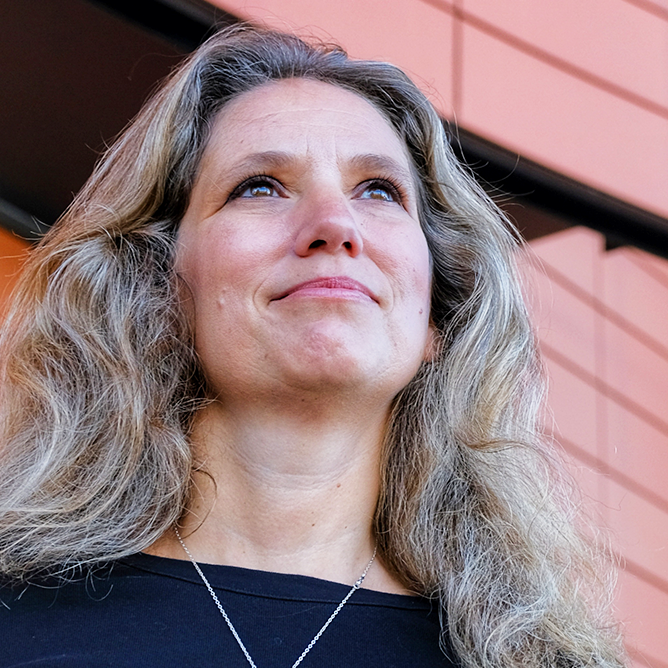
Dr Emily Shuckburgh, Cambridge Zero and Department of Computer Science and Technology, University of Cambridge

Dr Emily Shuckburgh, Cambridge Zero and Department of Computer Science and Technology, University of CambridgeDr Emily Shuckburgh is Director of Cambridge Zero at the University of Cambridge and Reader in Environmental Data Science at the Department of Computer Science and Technology. She is a mathematician and climate scientist and a Fellow of Darwin College, a Fellow of the Cambridge Institute for Sustainability Leadership, an Associate Fellow of the Centre for Science and Policy and a Fellow of the British Antarctic Survey. Dr Shuckburgh leads the UKRI Centre for Doctoral Training on the Application of AI to the study of Environmental Risks (AI4ER). Until April 2019 she led a UK national research programme on the Southern Ocean and its role in climate (ORCHESTRA), and was deputy head of the Polar Oceans Team and head of the Data Science Group at British Antarctic Survey. In the past she has worked at École Normale Supérieure in Paris and at MIT. She is a fellow of the Royal Meteorological Society and co-chair of their Climate Science Communications Group. She has also acted as an advisor to the UK Government on behalf of the Natural Environment Research Council. In 2016 she was awarded an OBE for services to science and the public communication of science. She is co-author with HRH The Prince of Wales and Tony Juniper of the Ladybird Book on Climate Change. |
|---|---|
| 13:35 - 14:05 |
The UK and global climate ambition
Recent reports from IPCC have demonstrated that “rapid, far-reaching and unprecedented changes” are required across all systems – energy, industrial, urban and transport - to achieve net zero and the goals of the Paris Agreement. This means going beyond incremental approaches and traditional policy instruments. Digitalisation will be an intrinsic part of the transformations that are required. The UK’s 10 point-plan is starting point that can bolster the climate leadership needed to run a successful COP26 meeting in Glasgow in 2021. The UK’s Climate Change Act provides a robust framework for upping ambition and setting a path to net zero by 2050. A 6th Carbon Budget that reflects that ambition is needed. 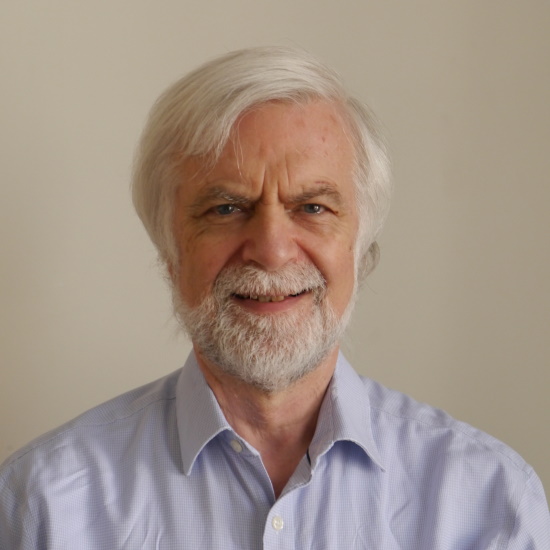
Professor Jim Skea CBE OBE

Professor Jim Skea CBE OBEJim Skea is Professor of Sustainable Energy at Imperial College London with research interests in energy, climate change and technological innovation. He is currently Co-Chair of IPCC Working Group III for the 6th assessment cycle. He was Research Director of the UK Energy Research Centre 2004-12 and Director of the Policy Studies Institute 1998-2004. He has operated at the interface between research, policy-making and business throughout his career. He was a member of the UK Committee on Climate Change from its inception in 2008 until 2018. From 2018 to 2021 he chaired the first phase of the Scottish Just Transition Commission which made recommendations on how to make a fair and equitable transition to net zero greenhouse gas emissions in Scotland. He was re-appointed as Chair for the second phase in 2021. Until June 2017, he was President of the UK Energy Institute. He was awarded a CBE for services to sustainable energy in 2013 and an OBE for services to sustainable transport in 2004. |
Chair
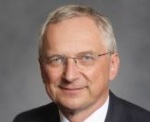
Professor Andrew Hopper CBE FREng FRS, University of Cambridge

Professor Andrew Hopper CBE FREng FRS, University of Cambridge
Professor Andy Hopper is Treasurer and Vice-President of the Royal Society, Chairman of RealVNC Group and former Head of the Department of Computer Science and Technology at Cambridge University. His research interests include computer networking, pervasive and sensor-driven computing, and using computer technology to ensure sustainability of the planet.
Andy has pursued academic and industrial careers simultaneously. In the industrial context he has co-founded thirteen spin-outs and start-ups, three of which floated on stock markets, as well as working for multinational companies. In recent years the companies he co-founded have received five Queen's Awards for Enterprise.
Andy received the BSc degree from the University College of Swansea (1974) and the PhD degree from the University of Cambridge (1978). He is a Fellow of the Royal Academy of Engineering (1996) and of the Royal Society (2006). He was made a CBE for services to the computer industry (2007). He was President of the Institution of Engineering and Technology (2012). He is a recipient of the Royal Academy of Engineering MacRobert Award (2013) and the Royal Society Bakerian Medal (2017).
| 14:30 - 14:50 |
Monitoring, simulation and prediction of climate change and progress to Net Zero
For over 30 years the Met Office has been monitoring, simulating and predicting our climate system. Over time, the needs for information about climate variability and change have diversified and become more local in order to inform practical decision making. At the same time, the explosion of data from satellites and other observation sources, together with increases in model resolution and complexity, have challenged our traditional approaches. Consequently, we are developing different techniques for handling the data and running models at increasing resolution. Previously, we could rely on computer chips becoming ever more powerful; we now have to find more varied ways of overcoming that challenge, eg by recoding our models and incorporating machine learning. To do this in a more sustainable way, we also require improvements in the efficiency of the underlying technology. We will discuss these challenges in the context of the UK's ambition to achieve Net Zero. 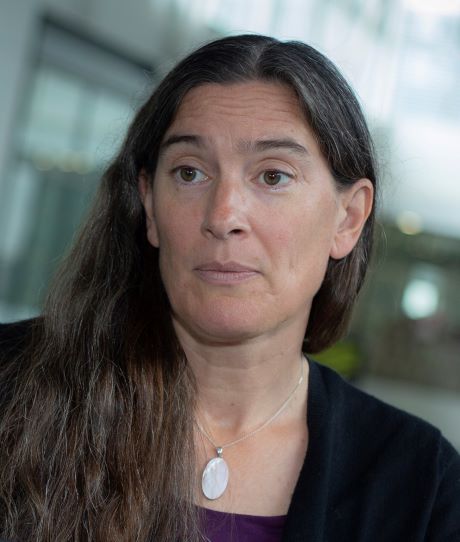
Nick Rayner, Head of Climate Monitoring, UK Met Office

Nick Rayner, Head of Climate Monitoring, UK Met OfficeNick Rayner is Head of Climate Monitoring at the Met Office Hadley Centre. She has been working on the development of observational climate data sets since the early 1990s. Her work has focused on understanding how to bring diverse measurements together to create consistent records for the mid-nineteenth century until present and on quantifying uncertainties in those records. Nick has worked on a range of European collaborations developing state-of-the-art climate information, combining data from satellites and longer-term observations. She leads a team at the Met Office who use observational data to monitor the current state of the climate (both globally and for the UK) and put it into its historical context. 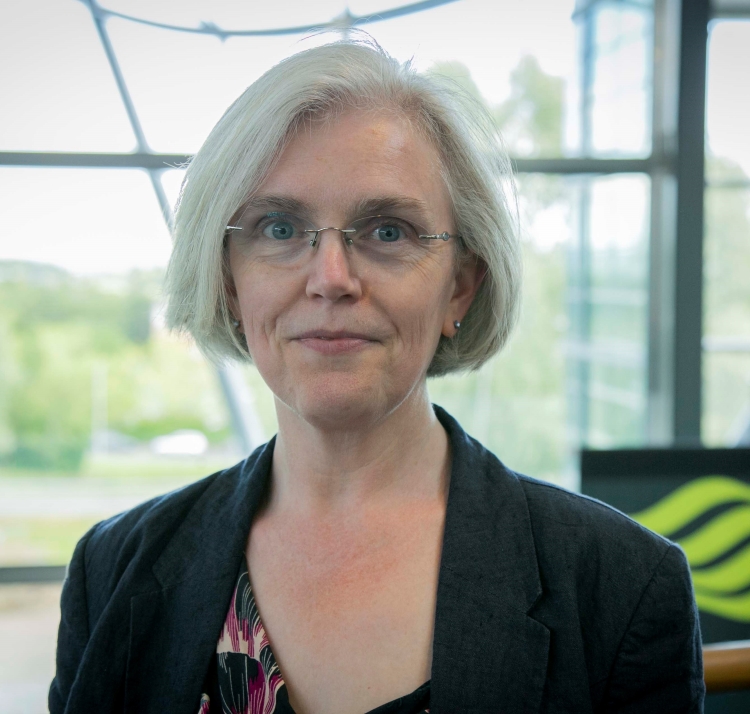
Nic Bellingham, Supercomputing Technology Lead, UK Met Office

Nic Bellingham, Supercomputing Technology Lead, UK Met OfficeNic Bellingham joined the Met Office as a graduate in 1992 with a degree in Mathematics & Computer Science. Most of her career has been in IT-focused roles, from developing mainframe and PC applications to working with the Programme that will deliver the Met Office’s Supercomputing capability through to 2032. In 2012 she moved from software engineering into an IT Service Management role, with responsibility for the delivery of a range of operational services, including forecaster applications and public and commercial web offerings. From 2014 to 2016, Nic was Deputy Head of IT Infrastructure & Operations with day-to-day responsibility for all Met Office IT services. In late 2016, she became Head of IT Infrastructure & Operations, leading the delivery of the Met Office IT estate and associated services. Since April 2019 Nic has been seconded to the Met Office’s Supercomputing Programme, leading the engagement with the Programme from the organisation’s Technology directorate. |
|---|---|
| 14:55 - 15:15 |
What role for Digital Twins in Net Zero?
The talk will explore how digital twins could contribute to the delivery of Net Zero. Digital twins are becoming prevalent in the advanced manufacturing sector and are becoming by design more adaptive, embracing the Internet of Things, Artificial Intelligence, Machine Learning and analytics. Application of such twins is expanding into the built environment and smart cities. There is a recognised climate change mitigation challenge that sits in the built environment, with 25% of UK greenhouse gas emissions, 40% of UK energy demand, and nearly an estimated £100 billion investment in buildings needed in the next decade to decarbonise by 2050. What role can digital twins play to deliver dynamic 3-D models that reflect real-life and time performance while delivering energy resilience, cost savings, resource efficiency and decarbonisation of buildings, campuses, communities, and cities? 
Professor Paul Monks, Chief Scientific Officer, Department for Business, Energy and Industrial Strategy

Professor Paul Monks, Chief Scientific Officer, Department for Business, Energy and Industrial StrategyProfessor Paul Monks is Chief Scientific Adviser of the Department for Business, Energy and Industrial Strategy. Prior to joining the department, he was Pro-Vice Chancellor and Head of College of Science and Engineering at the University of Leicester, where he remains a Professor in Atmospheric Chemistry and Earth Observation Science. His research experience covers the broad areas of air quality, atmospheric composition and climate change that has provided a platform for translation into diverse areas including forensic science, CBRN, microbiology and food safety, natural resource management and breathomics (breath analysis as a medical diagnostic). Paul was the Chair for 10 years of the Defra Air Quality Expert Group (AQEG) and Deputy Chair of the Defra Science Advisory Council, alongside roles in the UKRI-NERC advice structures. He has worked internationally as the European representative on the Environmental Pollution and Atmospheric Chemistry Scientific Steering Committee (EPAC SSC) of the World Meteorological Organisation and ICACGP (International Commission on Atmospheric Chemistry and Global Pollution). As founding director of G-STEP (a university innovation initiative), he developed a business facing organisation with the aim of innovating using space based (EO) data to enhance the competitiveness of industry, particularly focused on SMEs. |
| 15:20 - 15:40 |
Zero and Everyone: Insights from lowRISC's Business Model for Logical Infrastructure
Advanced digital solutions can help achieve net zero, but creating them requires high levels of cooperation and innovation across multiple domains, sectors and jurisdictions. In this presentation, we’ll argue that for this to occur efficiently – and in many cases, at all – urgent attention must be given to building out logical infrastructure: open, permissively licensed, rigorously supported repositories of flexible, transparent and high-quality foundational IP. We’ll then explain how lowRISC’s business model provides a concrete, proven, and self-sustaining vector to deliver this outcome (bridging the gap between for-profit entities, universities, and the broader development community), and discuss some insights from our experience creating OpenTitan – the world’s first open source root-of-trust chip design – in partnership with Google, Western Digital, Seagate and other industry and academic contributors. Finally, we’ll briefly explore the potential step-change impact on net zero digitalisation that targeted government intervention, leveraging this approach, could have. 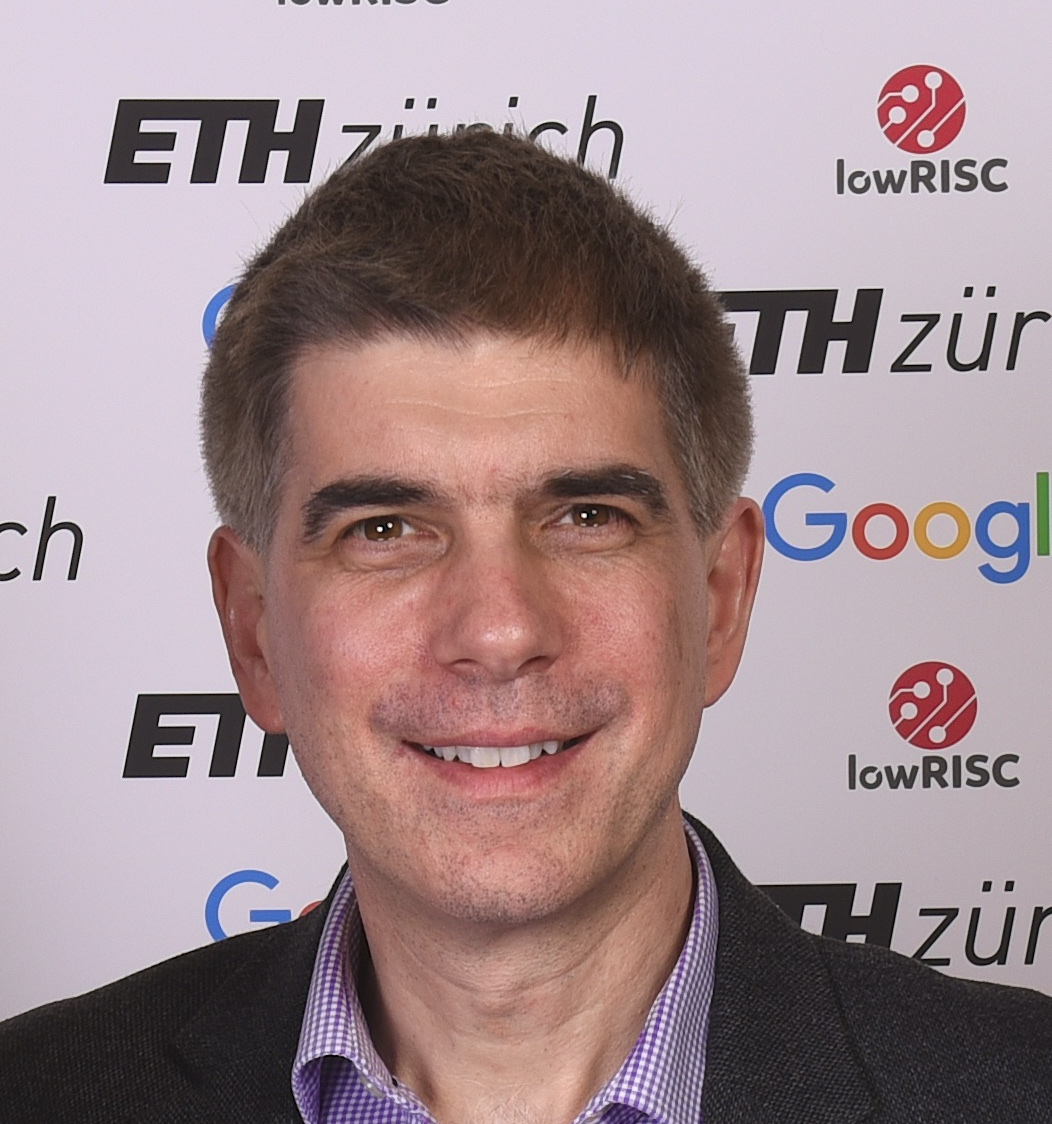
Dr Gavin Ferris, Co-Founder and CEO, lowRISC CIC

Dr Gavin Ferris, Co-Founder and CEO, lowRISC CICGavin Ferris is a technologist and successful entrepreneur, and holds a degree in Computer Science and PhD in AI from the University of Cambridge. Early in his career Dr Ferris moved to Los Angeles to work as a software lead at DreamWorks SKG, after which he returned to the UK to co-found a number of companies including RadioScape and Crescent Technology (fintech). When the latter was acquired by Aspect Capital, a multi-billion dollar computational hedge fund, Dr Ferris became its Chief Architect and ultimately, CIO. Dr Ferris co-founded lowRISC CIC in 2014, and currently works pro bono as its CEO. |
| 15:45 - 16:05 |
AI for Industrial Energy Efficiency
Optimised energy efficiency will remain key to emissions reduction until we have a zero-carbon energy mix on the grid. This presentation will explore the autonomous system DeepMind created to control for energy efficiency at industrial complexes, such as Google data centres, and why these systems are important for our journey towards Net Zero. 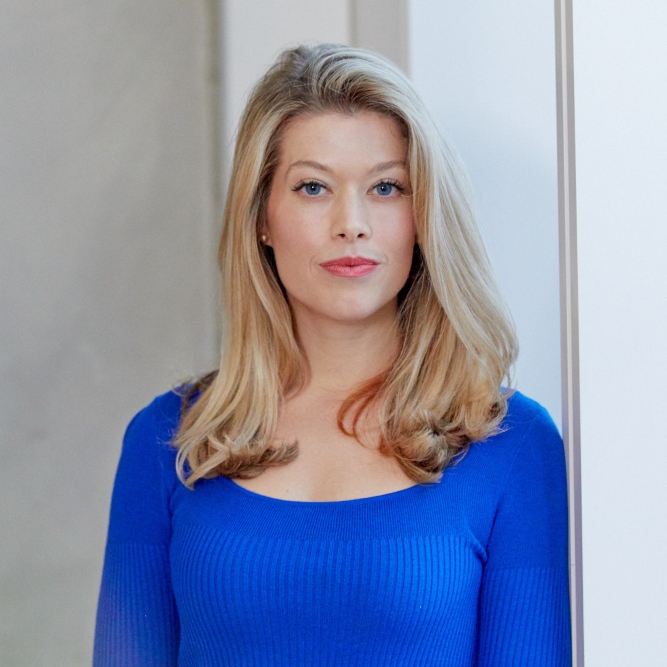
Sims Witherspoon, Programme Manager, DeepMind

Sims Witherspoon, Programme Manager, DeepMindSims is a Programme Manager at artificial intelligence company DeepMind, where she is responsible for the portfolio of climate and sustainability projects. Sims has 10+ years of experience in socially-beneficial applications of technology and was previously a founding member of the Google Crisis Response team, which develops products that deliver information to people during natural and human-made crises. She holds a BA from the University of Pennsylvania and will soon complete her MSc in Psychological Sciences at UCL, where she also holds a Cognitive Neuroscience volunteer position at The Affective Brain Lab. |
Chair

Alex van Someren, Managing Partner, Amadeus Capital Partners

Alex van Someren, Managing Partner, Amadeus Capital Partners
Alex van Someren is Managing Partner of the Seed Funds at Amadeus. He is a director or an observer on the boards of the Seed Fund portfolio companies. Alex has a current investment focus on Big Data, Cloud Computing, Cybersecurity, Healthcare IT, the Internet of Things and Medical Technology. Alex left school to join Acorn Computers in the 1980s where he was extensively involved in the BBC Microcomputer project. He subsequently co-founded ANT Ltd in 1990 to produce networking products, including Web Browser software licensed to the Oracle Corporation. ANT plc was listed on the London AIM market (AIM:ANTP) in 2005 and is now positioned in the embedded software market for IPTV. In 1996 he co-founded nCipher with venture capital backing to develop internet security products using advanced cryptography. The company became a world leader in IT security, counting major banks, finance companies and governments among its customers. He subsequently raised a total of £14 million in venture capital funding before he led the company to a listing on the London Stock Exchange in 2000 (LSE:NCH) at a £350 million valuation. nCipher plc was sold to Thales SA in 2008.

Dr Rhian-Mari Thomas OBE, Chief Executive, The Green Finance Institute

Dr Rhian-Mari Thomas OBE, Chief Executive, The Green Finance InstituteDr Rhian-Mari Thomas is CEO of the Green Finance Institute, backed by the UK Government and City of London Corporation. Rhian spent 20 years in investment and corporate banking and was awarded an OBE in 2019 for services to green banking. She is an Emeritus Member of the TCFD, currently co-chair of the Informal Working Group for the Taskforce on Nature-related Financial Disclosures and Advisory Board member for UCL Bartlett School for Environment, Energy and Resources and UK Government’s Climate Finance Accelerator. She is also a member of the UK Government’s Financial Services Trade Advisory Group, Net Zero Technology and Innovation Advisory Group. Rhian was a commissioner on the Zero Carbon Commission and previously sat on the UK Government Green Finance Taskforce, the Banking Environment Initiative’s Fintech Taskforce and the steering group for the UN Environment Programme Principles for Responsible Banking. Rhian holds a PhD in Physics from Trinity College Dublin. 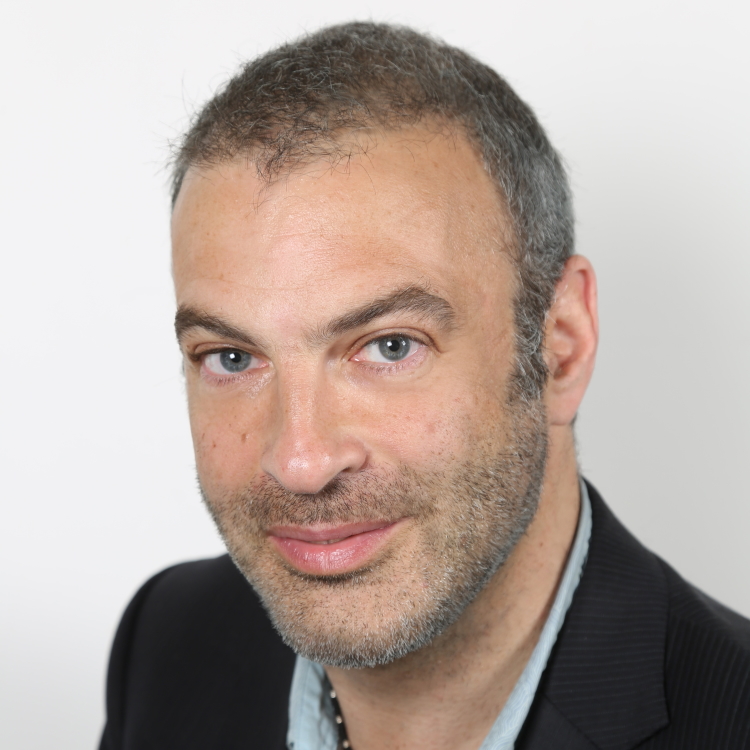
Dimitri Zenghelis, Special Advisor, Bennett Institute Cambridge University and Senior Visiting Fellow Grantham Research Institute LSE

Dimitri Zenghelis, Special Advisor, Bennett Institute Cambridge University and Senior Visiting Fellow Grantham Research Institute LSEDimitri Zenghelis is a founder of the Wealth Economy Project at the Bennett Institute, University of Cambridge and is a Senior Visiting Fellow at the London School of Economics. He was until recently Head of Policy at the Grantham Research Institute at the LSE and Acting Chief Economist for the Global Commission on the Economy and Climate. Previously, he headed the Stern Review Team at the Office of Climate Change, London, and was a lead author on the Stern Review on the Economics of Climate Change, commissioned by the then Chancellor Gordon Brown. Before working on climate change, Dimitri was Head of Economic Forecasting at HM Treasury. He advises governments, financial institutions and international organisations (including the UN, World Bank and regional development banks, the Mayor of London and the UK Committee on Climate Change among others) on macroeconomics, sustainable growth, climate change and innovation. 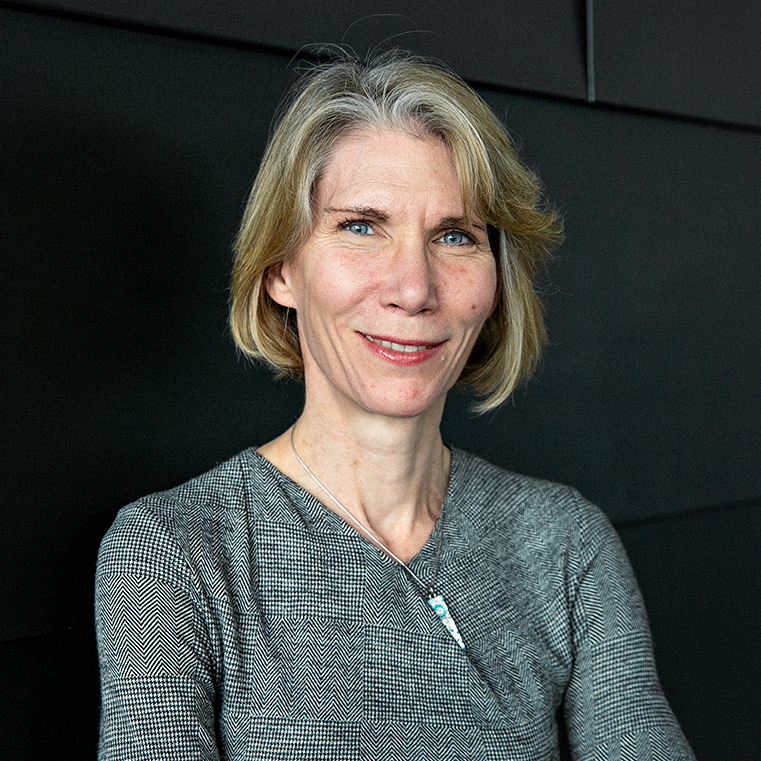
Alexandra Bolton, CEO, Centre for Digital Built Britain, University of Cambridge

Alexandra Bolton, CEO, Centre for Digital Built Britain, University of CambridgeAlexandra Bolton has been CDBB's Executive Director since the Centre came to Cambridge in August 2017. She works across CDBB’s programmes, including the National Digital Twin programme and the Construction Innovation Hub, to advance the digital transformation of the built environment in order to improve people’s quality of life. She joined the University of Cambridge in 2014, where she previously held roles within the Department of Engineering. She has had a varied career, having worked in industry and the City including as an oil trader for a world leading commodities house, and as a chemical engineer for one of the oil majors. She holds an MA in Chemical Engineering and a Postgraduate Diploma in Law. 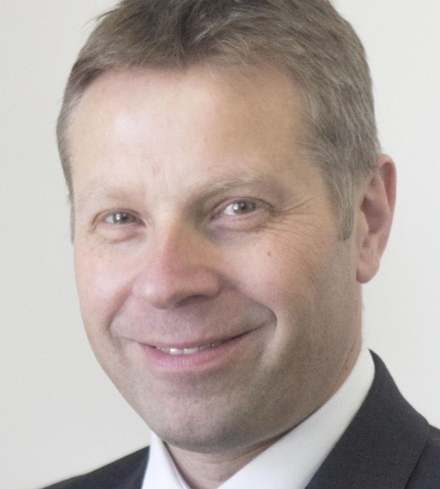
Peter Bingham, Chief Engineer, Ofgem

Peter Bingham, Chief Engineer, OfgemPeter Bingham joined Ofgem in 2017 as Chief Engineer. Ofgem is the Office of Gas and Electricity Markets (the Energy Regulator for Great Britain) which protects the interests of electricity and gas consumers. Many of the companies regulated by Ofgem have engineering at their core, with innovation and technology driving the decarbonisation of electricity, heat and transport. Peter is responsible for leading Ofgem’s Engineering Hub, which helps ensure regulatory policy development is technically robust, supports innovation, and challenges companies on network investment and operations on behalf of customers. Prior to joining Ofgem, Peter worked as a consultant with both Baringa and PA Consulting, advising investors and utilities on matters associated with the growing need for flexibility in the electricity system as traditional coal and gas fired power stations are replaced with wind and solar power. This followed a 25-year career working at National Grid, where he held a variety of senior leadership positions across Gas and Electricity, Transmission and Distribution, in the UK and in the US. He began his career as a Power System Design Engineer, before embarking on a diverse range of roles across electricity system operations, regulatory policy, network sales, gas operations and energy policy. Peter is a Chartered Engineer, with an engineering degree from Imperial College and a MBA from Warwick University. |
Chair

Dame Sue Ion GBE FREng FRS

Dame Sue Ion GBE FREng FRS
Dame Sue Ion GBE FRS FREng is Hon President of the National Skills Academy for Nuclear. She was previously Chairman of the UK Nuclear Innovation Research Advisory Board (NIRAB). She represents the UK on a number of international review and oversight committees for the nuclear sector including the Euratom Science and Technology Committee which she chaired until late 2018. She was the only non-US member of the US Department of Energy’s Nuclear Energy Advisory Committee on which she has served from 2005-2020.She currently serves as a member of the Office of Nuclear Regulation Independent Advisory Panel.
Sue spent 27 years with British Nuclear Fuels Ltd (BNFL) rising to the position of Chief Technology Officer in 1992, a post she held until 2006 when she assumed a number of mainly voluntary roles in Science and Engineering, including membership of the UK Council for Science and Technology and the Engineering and Physical Sciences Research Council (EPSRC). She was Vice President of the Royal Academy of Engineering 2002-2008 and chaired its MacRobert Committee 2013-2019. Sue was Deputy Chair of the Board of the University of Manchester until September 2018 and currently serves on the Board of the University of Central Lancashire.
Her core expertise is in materials science and engineering associated with the nuclear sector. Sue is a member of the Chief Scientific Advisor for Wales’s Science and Innovation Advisory Council. She has been a Visiting Professor in the Department of Materials at Imperial College since 2006, holds an Honorary Professorship at the University of Manchester and is now Chair of the Royal Society Science, Industry and Translation Committee.
Chair

Dame Sue Ion GBE FREng FRS

Dame Sue Ion GBE FREng FRS
Dame Sue Ion GBE FRS FREng is Hon President of the National Skills Academy for Nuclear. She was previously Chairman of the UK Nuclear Innovation Research Advisory Board (NIRAB). She represents the UK on a number of international review and oversight committees for the nuclear sector including the Euratom Science and Technology Committee which she chaired until late 2018. She was the only non-US member of the US Department of Energy’s Nuclear Energy Advisory Committee on which she has served from 2005-2020.She currently serves as a member of the Office of Nuclear Regulation Independent Advisory Panel.
Sue spent 27 years with British Nuclear Fuels Ltd (BNFL) rising to the position of Chief Technology Officer in 1992, a post she held until 2006 when she assumed a number of mainly voluntary roles in Science and Engineering, including membership of the UK Council for Science and Technology and the Engineering and Physical Sciences Research Council (EPSRC). She was Vice President of the Royal Academy of Engineering 2002-2008 and chaired its MacRobert Committee 2013-2019. Sue was Deputy Chair of the Board of the University of Manchester until September 2018 and currently serves on the Board of the University of Central Lancashire.
Her core expertise is in materials science and engineering associated with the nuclear sector. Sue is a member of the Chief Scientific Advisor for Wales’s Science and Innovation Advisory Council. She has been a Visiting Professor in the Department of Materials at Imperial College since 2006, holds an Honorary Professorship at the University of Manchester and is now Chair of the Royal Society Science, Industry and Translation Committee.

Dame Sue Ion GBE FREng FRS

Dame Sue Ion GBE FREng FRSDame Sue Ion GBE FRS FREng is Hon President of the National Skills Academy for Nuclear. She was previously Chairman of the UK Nuclear Innovation Research Advisory Board (NIRAB). She represents the UK on a number of international review and oversight committees for the nuclear sector including the Euratom Science and Technology Committee which she chaired until late 2018. She was the only non-US member of the US Department of Energy’s Nuclear Energy Advisory Committee on which she has served from 2005-2020.She currently serves as a member of the Office of Nuclear Regulation Independent Advisory Panel. Sue spent 27 years with British Nuclear Fuels Ltd (BNFL) rising to the position of Chief Technology Officer in 1992, a post she held until 2006 when she assumed a number of mainly voluntary roles in Science and Engineering, including membership of the UK Council for Science and Technology and the Engineering and Physical Sciences Research Council (EPSRC). She was Vice President of the Royal Academy of Engineering 2002-2008 and chaired its MacRobert Committee 2013-2019. Sue was Deputy Chair of the Board of the University of Manchester until September 2018 and currently serves on the Board of the University of Central Lancashire. Her core expertise is in materials science and engineering associated with the nuclear sector. Sue is a member of the Chief Scientific Advisor for Wales’s Science and Innovation Advisory Council. She has been a Visiting Professor in the Department of Materials at Imperial College since 2006, holds an Honorary Professorship at the University of Manchester and is now Chair of the Royal Society Science, Industry and Translation Committee. |
Chair
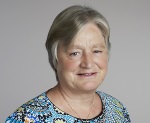
Professor Dame Julia Slingo DBE FRS, Former Chief Scientist at the Met Office, UK

Professor Dame Julia Slingo DBE FRS, Former Chief Scientist at the Met Office, UK
Julia Slingo became Met Office Chief Scientist in February 2009 where she leads a team of over 500 scientists working on a very broad portfolio of research that underpins weather forecasting, climate prediction and climate change projections. Before joining the Met Office she was the Director of Climate Research in NERC's National Centre for Atmospheric Science, at the University of Reading. In 2006 she founded the Walker Institute for Climate System Research at Reading, aimed at addressing the cross disciplinary challenges of climate change and its impacts. Julia has had a long-term career in atmospheric physics and climate science, working at the Met Office, ECMWF and NCAR in the USA. She has developed and used complex weather and climate models throughout her research career to understand the climate system and to predict its evolution. Her special interests are in tropical weather and climate variability, understanding their influence on the global climate system and their role in monthly to decadal climate prediction. Julia was elected to the Fellowship in 2015.
| 13:05 - 13:25 |
Getting to Net Zero: is it time to get smart?
Government has set a national Net Zero target, but where are the public? Do they understand what it means and are they enthusiastic? Take heat for example. Many of the technologies we need – heat pumps, district heating, thermal insulation – have been around since the 1970s. Yet uptake remains very low. Could the emergence of smart home technologies, like advanced heating controls, help change that? What about Heat-as-a-Service, where households buy warmth instead of fuel and a heating system? Could this new business model accelerate uptake of low carbon heat? And make sure everyone can afford to get comfortable in a Net Zero world? Matt will discuss what the Catapult’s experience on these topics from working with government and pioneering businesses on these problems. 
Dr Matthew Lipson, Business Leader: Consumer Insight, Energy Systems Catapult

Dr Matthew Lipson, Business Leader: Consumer Insight, Energy Systems CatapultMatthew Lipson is Business Leader for Consumer Insight at the Energy Systems Catapult. He helps bring industry, academia and Government together to accelerate the development of new technology-based products and services in the energy sector. Matthew has spent the last 20 years working with Universities and businesses for DECC, the Committee on Climate Change, the Energy Technologies Institute and Orange (amongst others) to design energy policies and commercial propositions that people love. He is now applying his experience to help others design delightful, intuitive low carbon product and service experiences. Find out more about his work on the Energy Systems Catapult People Lab website. |
|---|---|
| 13:30 - 13:50 |
Funding the energy and transport infrastructure to achieve Net Zero
Net Zero pensions provide a framework to fund “build back better” and deliver recovery without increasing the long term tax or debt burden. This talk and white paper, argues how over £1 Trillion in unfunded pension liabilities to pay energy and mobility costs in retirement, can be redirected to fund the transition to low carbon infrastructure. New technologies and sharing economy models, can enable “As a Service” energy, mobility, heat as a new pension right for low carbon universal basic services. Future cities can therefore fund investment in renewable generation, battery storage, low carbon transportation, smart grids and building energy efficiency, secured against existing private, public and state pension obligations. Simon will also cover technology examples of how large fleets of connected batteries and electric vehicles can be managed collectively to help cities achieve net zero energy transition. 
Simon Daniel, Founder and CEO, Moixa

Simon Daniel, Founder and CEO, MoixaSimon is the Founder and CEO of Moixa - the home and EV battery smart-charging specialists, and has 25 years of experience in technology and business innovation. He leads Moixa’s overall strategy and growth plans, and market relations across government, industry, investors – and has raised over £16m into the business. He is a serial inventor, with numerous patents in energy and mobile devices – e.g. he invented and licensed a folding PDA keyboard which sold 2m units. He founded Moixa for smart energy R&D and launched USBCELL in 2006, gaining numerous awards. Before that, he was a technology evangelist and senior manager at Accenture and holds an MA in Physics from Cambridge University. He is also a member of the Smart Systems Forum, as part of BEIS/Ofgem, reviewing UK flexibility strategy. |
| 13:55 - 14:15 |
Decarbonising the built stock: A digital twin of London and smart meters
In the next three decades every home and workplace will have to be made ready to receive decarbonised energy. This transformation will impact people’s lives and cost billions of pounds. New and existing data combined with smart analytics can facilitate the smoothest transition. Two case studies will be presented. The use of administrative and other data to build a detailed digital twin of every building in London to help local authorities and homeowners plan for the transition to net zero. The use of smart meter and other IoT data to assess a buildings efficiency and so help reduce the gap in performance of energy efficient technologies. 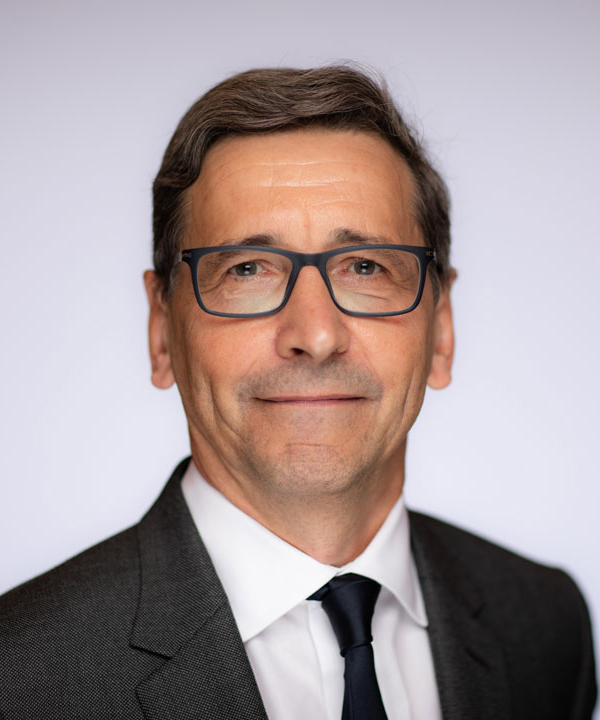
Professor Tadj Oreszczyn, Professor of Energy and Environment, UCL

Professor Tadj Oreszczyn, Professor of Energy and Environment, UCLTadj Oreszczyn FCIBSE PhD CEng is Professor of Energy and Environment at the UCL Energy Institute. Tadj was founding Director of the UCL Energy Institute and established the RCUK Centre for Energy Epidemiology. Tadj currently leads the building theme for the UK Centre for Research in Energy Demand Solutions and is Principle Investigator of the research council Smart Energy Research Lab. Tadj has, for 34 years, undertaken energy and building research with a particular focus around the performance gap between theory and practice and the unintended consequences (health, comfort, etc.) of building energy efficiency. His first degree was in Applied Physics followed by a PhD in Solar Energy. |
| 14:20 - 14:40 |
Building Back Better: BT's support for a green recovery
BT has led the way on climate action for over 28 years and has pledged to become a net zero carbon emissions business by 2045. In June, the company pledged its support for a green recovery – announcing two new initiatives: The UK Electric Fleets Coalition – BT has teamed up with The Climate Group and 28 other organisations, calling on the UK Government to accelerate the transition to low emission vehicles by 2030 and introduce supportive policy measures which help to unlock infrastructure investment. The Green Tech Innovation Platform - Working with Plug and Play, the world’s leading innovation platform, BT aims to uncover the latest green technologies from UK-based tech scale-ups that could support BT and its public sector customers. As part of the transition to a low carbon business model, BT has reduced the carbon emissions intensity of its operations by 42% since 2016/17 and is now purchasing 100% renewable electricity worldwide. 
Andy Wales, Chief Digital Impact and Sustainability Officer, BT Group

Andy Wales, Chief Digital Impact and Sustainability Officer, BT GroupAndy Wales is Chief Digital Impact and Sustainability Officer for BT plc, where he leads on digital skills, digital and human rights, climate and sustainability, and community engagement. He was previously Global VP Sustainable Development for beverage firm AB InBev, having spent 10 years with SABMiller plc as Corporate Affairs Director Europe and SVP Sustainability. Andy has also held Corporate Responsibility and Strategy Director roles at the environmental services group Severn Trent and textiles firm Interface, Inc. He is also and an active tech for good angel investor, a member of the Sainsburys Foundation Advisory Board and a non-executive director of WSUP. |
Chair

Professor Andrew Hopper CBE FREng FRS, University of Cambridge

Professor Andrew Hopper CBE FREng FRS, University of Cambridge
Professor Andy Hopper is Treasurer and Vice-President of the Royal Society, Chairman of RealVNC Group and former Head of the Department of Computer Science and Technology at Cambridge University. His research interests include computer networking, pervasive and sensor-driven computing, and using computer technology to ensure sustainability of the planet.
Andy has pursued academic and industrial careers simultaneously. In the industrial context he has co-founded thirteen spin-outs and start-ups, three of which floated on stock markets, as well as working for multinational companies. In recent years the companies he co-founded have received five Queen's Awards for Enterprise.
Andy received the BSc degree from the University College of Swansea (1974) and the PhD degree from the University of Cambridge (1978). He is a Fellow of the Royal Academy of Engineering (1996) and of the Royal Society (2006). He was made a CBE for services to the computer industry (2007). He was President of the Institution of Engineering and Technology (2012). He is a recipient of the Royal Academy of Engineering MacRobert Award (2013) and the Royal Society Bakerian Medal (2017).

Dr Robin North, CEO and Co-Founder, Immense Simulations

Dr Robin North, CEO and Co-Founder, Immense SimulationsDr Robin North, is the CEO and Co-Founder at Immense; with 18 years' experience working in the Transport industry. Robin started his career at Imperial College London moving from doctoral research through to a Lectureship in Transport and the Environment; establishing the Intelligent Infrastructure and Transport Systems Laboratory. In 2016 Robin went on to co-found Immense where he has led the company from concept development through to establishing early products in market. 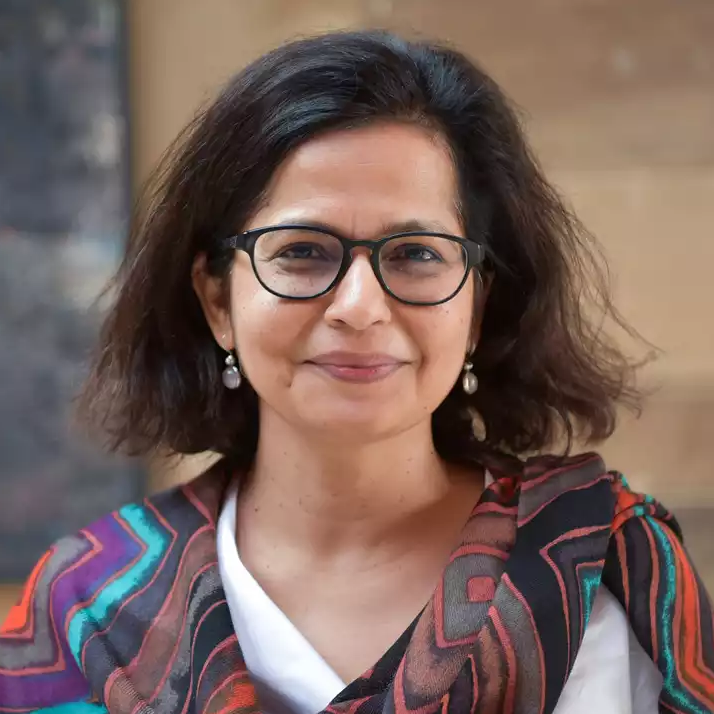
Dr Ruchi Choudhary, Reader of Architectural Engineering, University of Cambridge

Dr Ruchi Choudhary, Reader of Architectural Engineering, University of CambridgeDr Ruchi Choudhary is Reader of Architectural Engineering in the Engineering Department at University of Cambridge. She specializes in simulation methods for predicting energy demand of the built environment. She is leading the research group on Digital Twins of Built Environment at the Alan Turing Institute (2018-2021). At Cambridge, she leads the multi-disciplinary Energy Efficient Cities Initiative, initially funded by a Science & Innovation award at Cambridge. She is also co-Investigator of the Cambridge Centre for Smart Infrastructure & Construction. Her research spans simulation-based methodologies for energy management of buildings; uncertainty quantification in building simulation models; and multi-disciplinary interactions influencing energy use in cities. She is leading projects on modelling underground heat and city-scale geothermal systems, urban farming, and end-use energy demand modelling. In 2019 she became fellow of the International Building Performance & Simulation Association (IBPSA). She is elected chair of IBPSA-England since 2018. She is on the editorial board of J. of Building Performance Simulation, BSER&T the CIBSE Journal, Sustainable Cities and Society, and ICE J. of Smart Infrastructure & Construction. 
Dr Matthew Lipson, Business Leader: Consumer Insight, Energy Systems Catapult

Dr Matthew Lipson, Business Leader: Consumer Insight, Energy Systems CatapultMatthew Lipson is Business Leader for Consumer Insight at the Energy Systems Catapult. He helps bring industry, academia and Government together to accelerate the development of new technology-based products and services in the energy sector. Matthew has spent the last 20 years working with Universities and businesses for DECC, the Committee on Climate Change, the Energy Technologies Institute and Orange (amongst others) to design energy policies and commercial propositions that people love. He is now applying his experience to help others design delightful, intuitive low carbon product and service experiences. Find out more about his work on the Energy Systems Catapult People Lab website. |
Chair

Professor Andrew Hopper CBE FREng FRS, University of Cambridge

Professor Andrew Hopper CBE FREng FRS, University of Cambridge
Professor Andy Hopper is Treasurer and Vice-President of the Royal Society, Chairman of RealVNC Group and former Head of the Department of Computer Science and Technology at Cambridge University. His research interests include computer networking, pervasive and sensor-driven computing, and using computer technology to ensure sustainability of the planet.
Andy has pursued academic and industrial careers simultaneously. In the industrial context he has co-founded thirteen spin-outs and start-ups, three of which floated on stock markets, as well as working for multinational companies. In recent years the companies he co-founded have received five Queen's Awards for Enterprise.
Andy received the BSc degree from the University College of Swansea (1974) and the PhD degree from the University of Cambridge (1978). He is a Fellow of the Royal Academy of Engineering (1996) and of the Royal Society (2006). He was made a CBE for services to the computer industry (2007). He was President of the Institution of Engineering and Technology (2012). He is a recipient of the Royal Academy of Engineering MacRobert Award (2013) and the Royal Society Bakerian Medal (2017).
|
The role of smart technologies in changing behaviours and cutting emissions
It is clear that consumers will need to play a central role in the shift to a zero-carbon economy. The Committee on Climate Change has estimated that over 60% of the measures to reach net-zero emissions will involve behavioural or societal changes. Smart technologies have significant potential to support on this journey. In this talk, Juliet Davenport will discuss Good Energy’s experience and vision for smart technologies to transform people’s energy usage. Her talk will draw on the latest data into consumer behaviour and insights from her roles on some of the country’s leading research institutes. 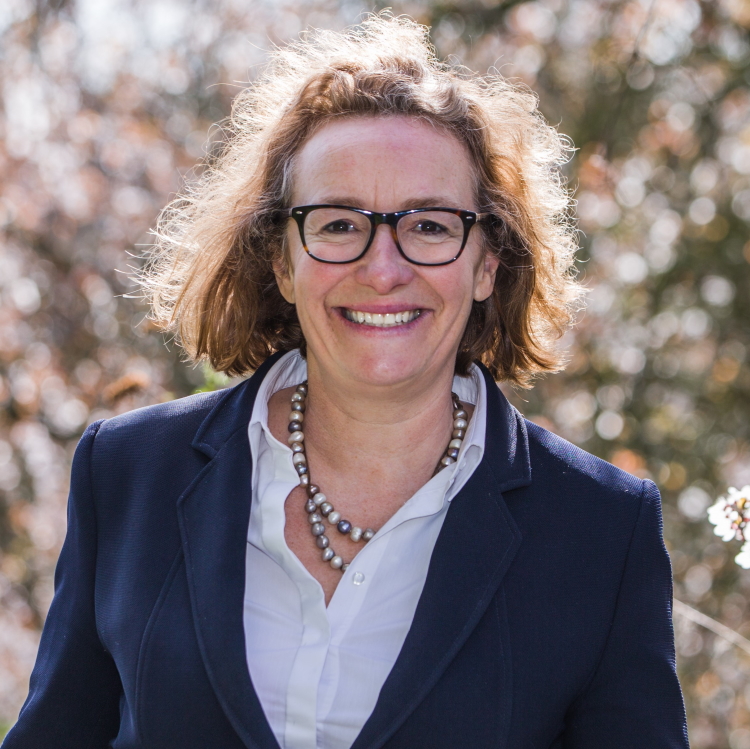
Juliet Davenport OBE, CEO and Founder, Good Energy

Juliet Davenport OBE, CEO and Founder, Good EnergyJuliet is founder and Chief Executive Officer of Good Energy – a renewable energy company with a mission to power a greener, cleaner future together with its customers. Juliet has been an innovator for over 20 years, working on ideas to fight climate change and transform the energy sector for the better. In 2013, she was awarded an OBE for services to renewables. She currently sits on the boards of The Crown Estate, Renewable Energy Association and Innovate UK, and is Vice President of the Energy Institute. In addition, she sits on the advisory boards of leading UK think tanks, including Energy Systems Catapult, Aurora, Oxford Energy, and LSE’s Grantham Institute. |
|
| 17:00 - 17:15 |
Closing remarks

Professor Andrew Hopper CBE FREng FRS, University of Cambridge

Professor Andrew Hopper CBE FREng FRS, University of CambridgeProfessor Andy Hopper is Treasurer and Vice-President of the Royal Society, Chairman of RealVNC Group and former Head of the Department of Computer Science and Technology at Cambridge University. His research interests include computer networking, pervasive and sensor-driven computing, and using computer technology to ensure sustainability of the planet. Andy has pursued academic and industrial careers simultaneously. In the industrial context he has co-founded thirteen spin-outs and start-ups, three of which floated on stock markets, as well as working for multinational companies. In recent years the companies he co-founded have received five Queen's Awards for Enterprise. Andy received the BSc degree from the University College of Swansea (1974) and the PhD degree from the University of Cambridge (1978). He is a Fellow of the Royal Academy of Engineering (1996) and of the Royal Society (2006). He was made a CBE for services to the computer industry (2007). He was President of the Institution of Engineering and Technology (2012). He is a recipient of the Royal Academy of Engineering MacRobert Award (2013) and the Royal Society Bakerian Medal (2017). |
